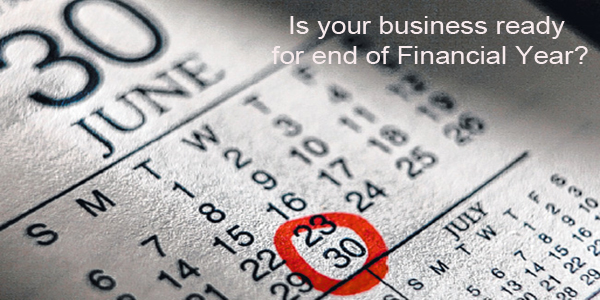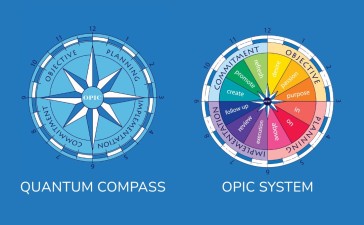The end of the financial year can be very stressful for you if you don’t have systems in placed to manage the process. There are several steps you can do to prepare and ready for the end of Financial year.
The first step is to make sure that all of your financial (paperwork) are in order. Carefully check that all your finances have been reconciled correctly. Take a good look at your balance sheet and identify any potential cash flow issue for the new financial year ahead.
Here are the tips you can use to get your business ready for the end of Financial Year:
- Reconcile receivables – This is a task that most business owners are not doing enough, which will involve chasing down any outstanding payments from your clients.. If you can’t recover some debts and and no choice to write them off as bad debts, you will be able to claim a tax deduction.
- Stocktake – This is a tedious task but it’s important to do at the end of each financial year. Count your stock on hand and compare to your book stock. Also to see whether you can write off or write down the value of any stock. Your stock is your investment so it’s necessary to review at the end of each financial year. Check to see any stock can be sold to offset losses.
- Pre-pay – One strategy you can use is to pre-pay for any services and supplies in order to be able to claim a tax deduction. You can bring forward tax deductible expenses and deferring income can work to reduce your taxable income for the financial year too.
- Superannuation Payment – Make sure all superannuation are paid for the year as you have obligation to do so. You will receive a deduction for all employee superannuation obligations which you pay. As super is such a tax-effective method of investing, you may also want to look at investing your personal assets in super.
- Plan your New Financial Year – While you get your business ready for the end of financial years it’s also a perfect opportunity to reflect and plan for the year ahead. You can plan the following:
- Sales Budget (Ideally increase your sales & stretch yourself a little)
- Expense Budget (Be realistic with it don’t over or under budget)
- Profit and Loss forecast (Be realistic with it)
- Cash Flow Projection (Be very conservative with it)
- Set new financial business goals:
- Short term goal – Goals that are reachable in a short time in a day, week, or within month
- Middle term goal – Goals that fall in the middle like 6 to 12 months
- Long term – Goals that you have no clue about how to get there and they will challenge you. You also feel the fear because they are out of your comfort zone
- Review your Insurance – Are you protected against all the risks facing your business? Do you have an effective risk management in place for you and your business? Have a think about the following insurance covers:
- Business insurance
- Public Liability insurance
- Income protection
- Life insurance
- Medical fund
- Joint venture business – If you have business interest with other people, you should also consider the following:
- Review the business trading
- Review all directors responsibility and accountability
- Develop a business succession planner
- A purchase or sell agreement
As I always advise our new and existing clients… It’s important that you seek proper, professional advice in relation to your business, and the decisions that you make in your business. Your accountant and lawyer will be able to provide you such advice and guide you to the right direction.





